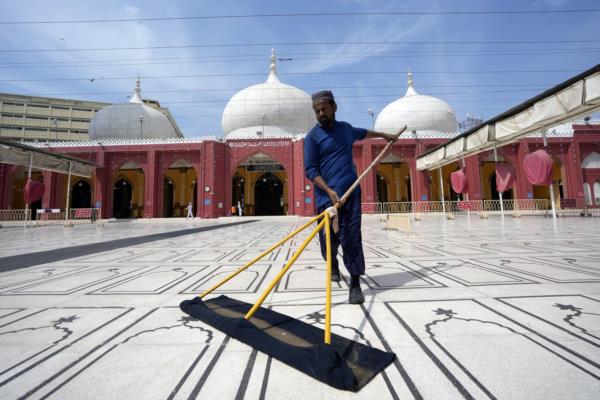
Officials in Saudi Arabia spotted the crescent moon on Sunday night, signaling the start of the holy month of Ramadan for a significant portion of the world's 1.8 billion Muslims. Ramadan is a sacred time of fasting, reflection, family gatherings, and charitable giving observed by Muslims worldwide.
Following the moon sighting, Saudi Arabia, along with several Gulf Arab nations, Iraq, Syria, and Egypt, announced that Monday would mark the first day of fasting. Leaders in these countries extended messages of congratulations to mark the beginning of Ramadan.
However, some Asia-Pacific countries such as Australia, Brunei, Indonesia, Malaysia, and Singapore will commence Ramadan on Tuesday after failing to sight the crescent moon. Similarly, Oman and Jordan also announced that Ramadan would begin on Tuesday.










This year's Ramadan coincides with ongoing conflicts in the Middle East, particularly the Israel-Hamas war in the Gaza Strip. Saudi King Salman emphasized the need for international intervention to halt the violence and provide humanitarian aid to those affected.
During Ramadan, Muslims break their fast with dates and water at sunset, followed by a larger meal known as 'iftar.' They also have a pre-dawn meal called 'suhoor' to sustain themselves during daylight hours.
While Ramadan is observed on a lunar calendar, moon-sighting methodologies vary among countries, leading to variations in the start date. Sunni-majority nations often follow Saudi Arabia's lead due to its significance in Islam.
Iran, a Shiite-majority country, typically begins Ramadan a day after Sunni nations. This year, Iran announced that Ramadan would commence on Tuesday, coinciding with the Persian New Year.
Despite efforts to focus on charity and peace during Ramadan, the conflict in Gaza and other ongoing wars in the region continue to cast a shadow over the holy month. The international community is urged to support efforts to bring relief and peace during this time.







